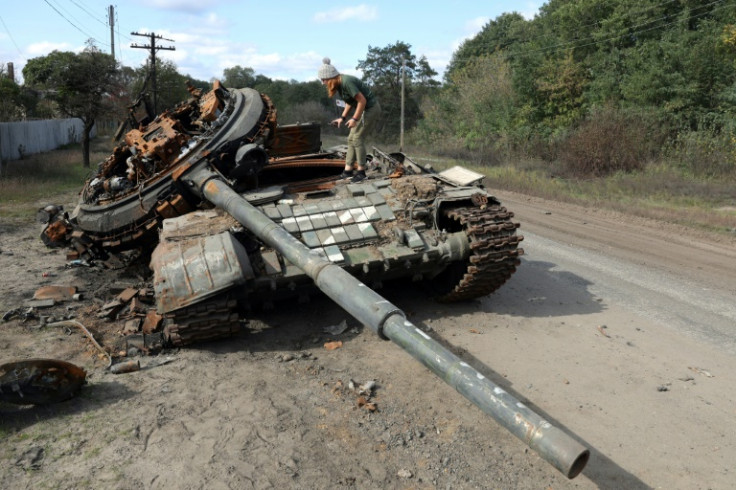The changing world order: the actions of several countries have the potential to affect the global order
As power shifts between nations, and some leaders appear to face certain downfall, the results could have significant implications for the rest of the world.

The world today is in flux as the global order undergoes drastic changes. Russia, once considered mighty, reliable, and invincible, is today a pariah of the West as it attacks Ukraine in an attempt to annex and absorb its territory. North Korea's leader Kim Jong Un has fired the deputy head of his military, called for the development of new intercontinental ballistic missiles, and ordered an increase in his nuclear weapons arsenal, according to reports.
For the first time in years, China saw mass public protests against a Communist government seen as too heavy-handed with regard to Covid-19 rules. Chinese leader Xi Jinping appears fixated on expanding its regional hegemony and in response, Japan has now abandoned pacifism and approved its biggest military buildup since the second world war amid fears over the strategic threat posed by both China and North Korea.
Iran's public is currently staging mass demonstrations against a ruling regime that has abused its power for decades and has now killed hundreds of protesters who have decried the killing of Mahsa Amini, 22, in September after she was arrested over an alleged hijab violation.
Should Russian President Vladimir Putin somehow fall, this would have global implications as it will further weaken Russia and reshuffle power among nations. It is unlikely that his successor will have the same standing and influence both within Russia as well as abroad. It is also highly plausible that the Russian public will revolt against another dictator trying to mirror Putin's style of rule. Russia tomorrow could be a vastly different country than the Russia we see today.
Likewise, if the Iranian people somehow bring about the downfall of their regime, this will also have global implications - perhaps more so. A regime change in Iran would mean an end to Iranian hegemony in the Middle East and the end of funding for terrorist proxies such as the Houthis in Yemen, Hezbollah in Lebanon, and Hamas in Gaza. It would also immediately remove the threat of nuclear weapons currently causing much consternation in the Middle East.
While these two scenarios may still be far off, if achievable at all, it is clear that change is afoot. The US can do much to assist Ukraine, as well as the opposition groups both in Russia and in Iran. The US does not want to be officially involved in regime change so as not to be viewed as meddling in other country's affairs, but it has the power, know-how, and capability to assist and influence events on the ground.

Furthermore, to prevent an expansionist China, the United States must revert to acting as the leader of the free world and exert its influence more forcefully in the Indo-Pacific region where it can show its presence and bring security to surrounding nations. Coupled with a strong military presence in the region, the US can and should make simultaneous efforts on the diplomatic front to bring China to its senses.
The US must work to discourage China from its expansionist aims and from saber-rattling in the South China Sea. As part of an effort to combat China's threats, the Quad, made up of the US, India, Japan and Australia, was created to ensure cooperation and coordination.
More effort must be made on this front to help ensure southeast Asia remains an area of calm, that Taiwan remains safe, and that war does not erupt between China and Japan. The Indo-Pacific region is heating up and the US can help prevent any escalation there.
To deter a dangerous North Korea, which continues to threaten countries in both the West and the East with nuclear weapons, the US must deploy its diplomats through both private and public diplomacy and demonstrate that it wishes no harm to North Korea and prefers a peaceful resolution to Kim Jong Un's perceived problems with other countries.
The US should not act alone with regard to North Korea and should, if possible, establish a working group of countries from Europe and Asia to confront it and work with it to calm tensions and attempt to arrive at a workable solution. Deterrence in this case is key.
The US must also confront Iran and take advantage today of the inner turmoil taking place there. A weakened regime means a stronger and safer world. As a case in point, the UK has announced it will label the Iran Revolutionary Guards Corps (IRGC) a terrorist organization. The Iran Nuclear Deal (JCPOA), which aims to send hundreds of billions of dollars to the regime, would destroy the Iranian public's hopes for regime change and it is clear that the money will only be used to kill more Iranian civilians while propping up Iran's terror proxies.
The Biden administration must cease pursuing a deal with Iran and should insist publicly instead that the regime allow more freedoms for its people. At the same time, the US should use subversion to undermine the regime and help the Iranian people win their long-sought freedom from an oppressive regime.
A radical change for the better on any one of these fronts would be beneficial and would drastically change the world order as we know it today. In the meanwhile, the US and other Western-aligned countries can help these processes advance by actively engaging and assisting where possible the forces of good, while confronting and challenging the forces of evil.

Daniel is a business consultant and analyst, with experience working for government organisations in the UK and US. On his free time, he regularly contributes to International Business Times UK.
© Copyright IBTimes 2025. All rights reserved.





















